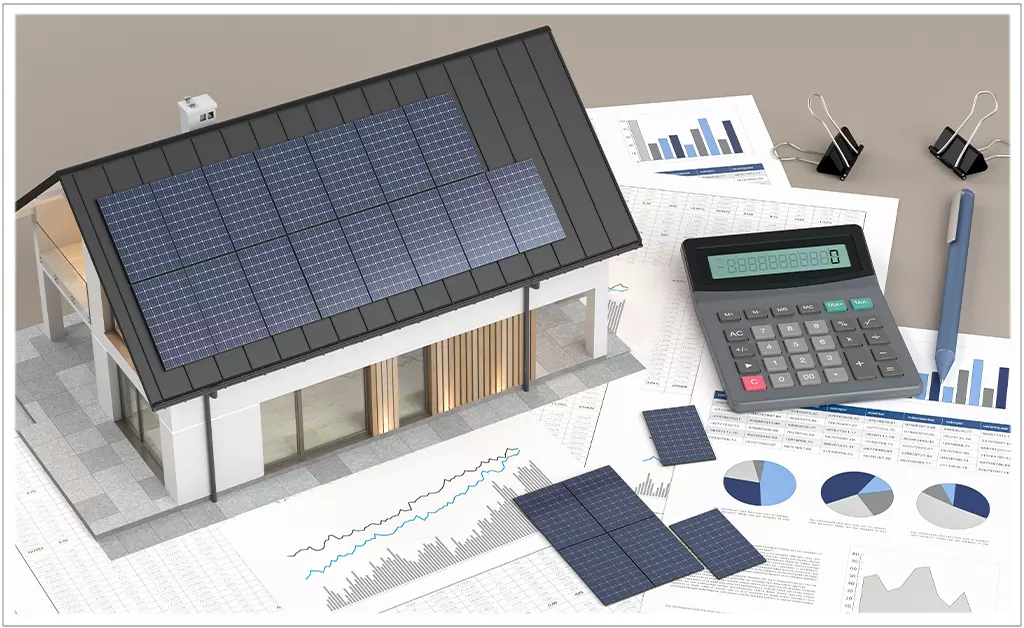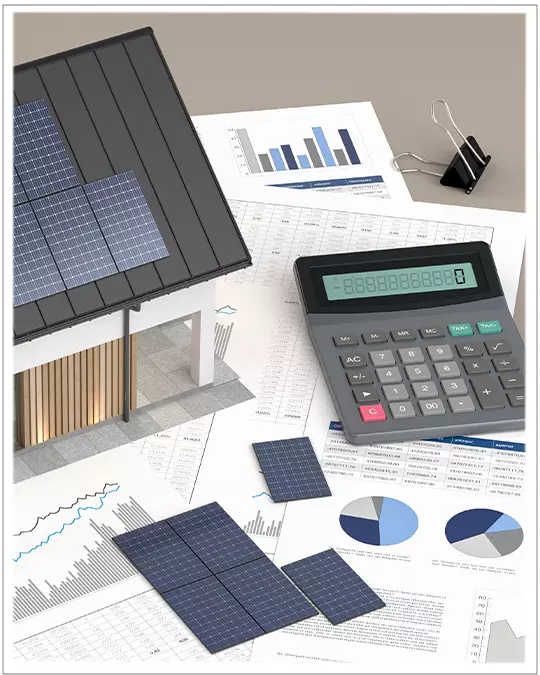

A Look at Solar
The Electric Bill can inspire you to look into Solar. It is Possible to save from 70% to 100% on Electric Costs, Depending on the Size and Kind of System.
Most, if not all, know very little about Solar or How the Components that make up the System work. Before you Sign up take the Time to Study and Learn about Solar, DO NOT Depend on A Salesperson to Properly Educate you.
Using the Web is A Good Source but Don't use Sponsored Sites, Enter Specific Questions then Scroll look for .gov or .edu or Trusted Publications that don't sell Solar even though they may suggest Companies that have paid them for Advertisements.
If you learn something from one Site Put that Information in a Search to verify that bit of Information with other sites. Trust but Verify.
Use the experience you get from the Web to talk with Friends who have Solar, Invite several Solar Companies, 4 or more, ask the Questions that are Important to you.
When Talking with a Solar Salesperson keep it Professional you're not Interviewing a New Friend.
Don't Sign Up until you become an Expert you could Save Thousands. Solar Systems are not Free, so don't be too quick to Sign Up for something that seems to be Free.
All of our Interviews with Homeowners that have Installed Solar within the last 3 years say the same thing, "I wish I knew that before" be the Solar Owner that can say "I knew that".
Possible Options to Pay for It:
Direct Upfront Cash Purchase
- Cheapest or Least Expensive, No Finance Fees or Interest
- If you are Lucky enough to have extra Savings or an Investment that has done well, use that
- No Payments You Start to Save on Power Costs as soon as the System goes on Line
- Cash vs. Loan you will save Thousands in Interest over a 25 Year Time Period
- You can take advantage of the Eligible State & Federal Tax Credits
- Notify Homeowners Insurance Company
- Adds Value to Your Home
Home Cash Out Refinance
- Use the Cash for Solar & Other Home Improvements
- Home Refinance can, in some cases, be a Good Choice, Check Refinance Interest Rates First
- You can take advantage of the Eligible State & Federal Tax Credits
- Notify Homeowners Insurance Company
- Adds Value to Your Home
Fixed Rate Home Equity Loan
- This Type of Loan usually has Favorable Interest Rate
- Longer Repayment Schedule
- You are using your Homes Equity to Secure the Loan
- You can take advantage of the Eligible State & Federal Tax Credits
- Notify Homeowners Insurance Company
- Adds Value to Your Home
Home Equity Line of Credit (HELOC)
- A Revolving Line of Credit Secured by your Homes Equity
- You can use as much or as little as you want up to the Limit
- Normally the Agreement allows you to pay only the Interest on the Amount Outstanding
- You can take advantage of the Eligible State & Federal Tax Credits
- Notify Homeowners Insurance Company
- Adds Value to Your Home
Loans Arranged by the Solar Installer
- This Type of Loan is arranged for by the Company that Sells and Installs the Solar System
- Lenders like Banks, Credit Unions work with the Solar Company just like Loans to Purchase a New Car
- Interest Rates and Length of the Loan could be determined by your your Credit Score
- You can take advantage of the Eligible State & Federal Tax Credits
- Notify Homeowners Insurance Company
- Adds Value to Your Home
Solar Lease Agreement, Third-party ownership
- Avoids High Upfront Costs
- The Leasing Company is Responsible for some if not all Maintenance & Operational Repairs
- The Leasing Company Installs and Owns the Solar System
- The Homeowner Pays the Agreed Pre-Determined Number of Payments
- Homeowner Pays the Regular Utility Bills
- Homeowner uses the Power Generated by the System
- Homeowner Gets Power Credit for any Excess Generated by the Solar System
- The Leasing Company can Remove and Take the System at the End of the Agreement
- Homeowner is Not Eligible State & Federal Tax Credits
- No Added Value to the Home
PPA or Power Purchase Agreements
- Third Party Company Installs, Owns and Operates the Solar System on the Homeowner’s Roof
- Third Party Company Provides all of the Electricity Produced by the Solar System to the Homeowner at a Fixed Competitive Rate per Kilowatt
- Third Party Company is Responsible for some if not all Maintenance and Operational Repairs
- Homeowner is Not Eligible State & Federal Tax Credits
- No Added Value to the Home
Additional Notes:
Maintenance and Cleaning of the PV System when Leasing or by Power Purchase Agreement may Differ. When Agreeing to either you should Read Carefully, be sure you know, who is Responsible and for what in the Agreement.
Proper Maintenance and Cleaning may be your Responsibility and/or a Requirement for Warranty for Certain Components of the PV System. The Accumulation of fine Dust can Possibly Reduce the Efficiency by as much as 30%.
Solar Systems Mounted on the Ground may not be Automatically covered by your Homeowners Insurance. That System may require a Separate Rider Policy.
Added Value
Other than a Lease or Power Purchase Agreement a PV Solar System will add Value to Your Home. According to Zillow the Appraised Value of your Home should increase by 4.1%.
With that said, there is no Industry Standard for the Added Value from Solar. Keep in mind Solar can be a Draw Back for some Home Buyers.
Negative When Selling
Prospective Buyers may be Skeptical about a Used Solar System in General, Unsure of the Expected Remaining Life, Possible Future Maintenance.
Having a Buyer Assume a 3rd Party Solar Lease Agreement may not be your Best Option. Possibly You can buy out the Lease so the Buyer has No Obligation to Pay. The 3rd Party Owner of the System (Lessor) may Charge you more than the Remaining Payments Value.
After a Lease Buy Out, any remaining Warranty on the Systems Components should be Honored by the Manufacture of the Component.
When Selling provide Information like the Age and how it has Benefited you, like Power Savings. Show Remaining Warranty Information for each Component and who Honors the Warranties.
If you are Purchasing a Pre-Existing Home with Solar, have a Home Inspector familiar with Solar provide you with complete a Inspection Report on the System. If you are still unsure have an Electrical Contractor that Specializes in Solar examine the System and its Components for Expected Operational Output.
Net Metering
Net Metering Transfers the Excess Power Generated by Your Solar System back to the Grid to offset your Electric Cost.
Power Companies need a Profit to Operate, Maintain Equipment and Make Repairs. Be sure to Investigate your Power Companies Net Metering Policy Now and in the Future, some may be Ending this Program.
Tax Credits
Tax Credits from the Local, State and Federal Governments are always changing and play an Important Role in encouraging us to go Solar. You should check your State Department of Energy or the State Corporation Commission.
Provided below is a Link to Energy.gov Homeowner’s Guide to the Federal Tax Credit for Solar Photovoltaics (updated March 2023) You will be leaving our Site and going to Their Website
Internal Links
Solar Panel Maintenance and Warranty
External Links
Energy.gov Federal Tax Credit Guide
Like this Article, you can give us a Thumbs just click on the Icon. It's anonymous and we will Thank You.

“Well done is better than well said”
Ben Franklin
© Copyright 2023 YPRemodel.com. All rights Reserved. This material may not be Published, Broadcast, Rewritten or Redistributed without written Permission.
